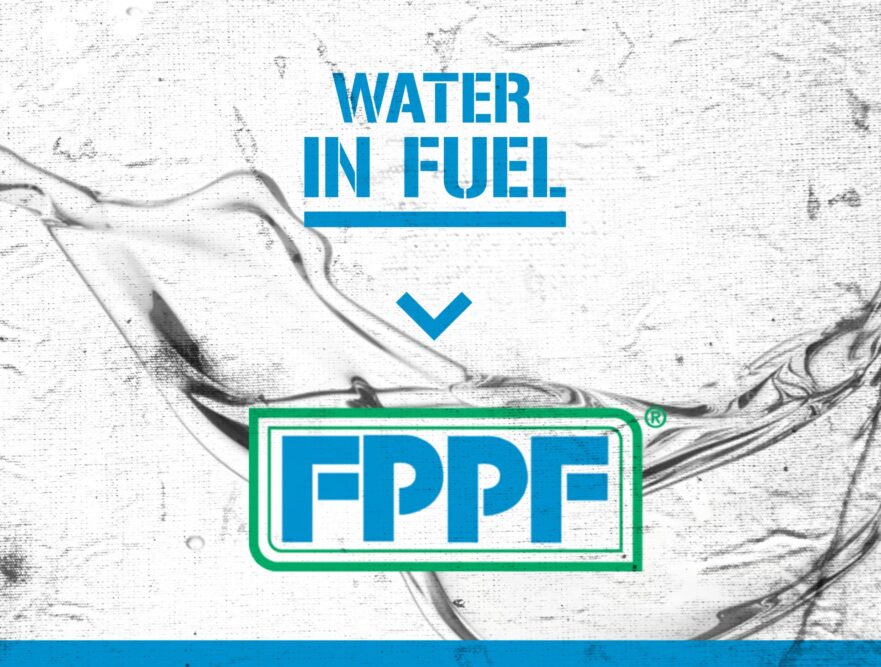fuel additive Company

The Damage Water in Your Diesel Fuel Can Cause
Water in your fuel is inevitable. And it will inevitably cause serious problems within your engine. There are several reasons why diesel fuel may contain water, and it’s one of the biggest enemies of diesel-powered engines. Water in diesel fuel can occur for a variety of reasons with it entering fuel during transit, storage or handling. Luckily, the specialists at FPPF are continuously developing new and powerful formulations to help you disperse and remove water in your fuel—year-round—to keep your engine running in top condition. But to treat water in diesel fuel properly, it’s best to understand a little more about what to look for and how to treat it.
Know Your Water
There are three types of water that can be found in diesel fuel. Dissolved water in solution includes low concentration of water levels that are found within diesel fuel. Emulsified water is a higher concentration of water that is free and dispersed (cloudy) throughout the fuel. Luckily, these types of water can easily be removed using FPPF products such as Fuel Power. The other type of water commonly found in diesel fuel is called free and settled (heavy) water. Free and settled water can be found at the bottom of the tank and is much more difficult to remove from diesel fuel. This is caused by poor storage and should be drained out as much as possible.
How Do You Know If There’s Water in Fuel?
If you think there could be water in your fuel, chances are there is. It’s everywhere. But it’s important to know the warning signs of water in your diesel fuel. Just like the symptoms of the common cold include congestion, fever, sore throat and headaches, your engine experiences symptoms when it has water injected into it. Visually inspect for fuel cloudiness as this would indicate the presence of water. Look for rough starting and erratic idling. Water in fuel can also lead to white or even black exhaust smoke. Water can even lead to your engine cutting out completely, especially during acceleration. If you’re experiencing any of these warning signs, it’s important to treat your diesel fuel with products like FPPF regularly to prevent any further harm or serious damage to your engine.
Water Creates a Growing List of Other Issues
Water alone can lead to costly engine failure and repairs. But water can also lead to other harmful issues. Water is a breeding ground for bacteria and microbes. Bacteria can’t grow without the presence of water. And when these microbes form, they multiply rapidly and create the formation of acids. Acid formation leads to fuel tank rust and corrosion as well as clogged fuel filters. Once there are signs of bacteria growth in your fuel tank, removing or dispersing the water is only half the battle. You’ll need to kill the bacteria as well to ensure you’re getting the most out of your diesel fuel. And nothing kills bacteria on contact like FPPF Killem.
Water Is Dangerous in Every Season
It’s important to stress year-round diesel fuel treatment. It’s true water is more common in the warmer running conditions. But once winter hits, any remaining water in your fuel tank may freeze, leading to a new laundry list of engine issues. The frozen water in your fuel can lead to frozen fuel pumps and frozen fuel lines. The only way to prevent these sorts of problems is to ALWAYS treat your diesel fuel with water-dispersing formulations from FPPF.
